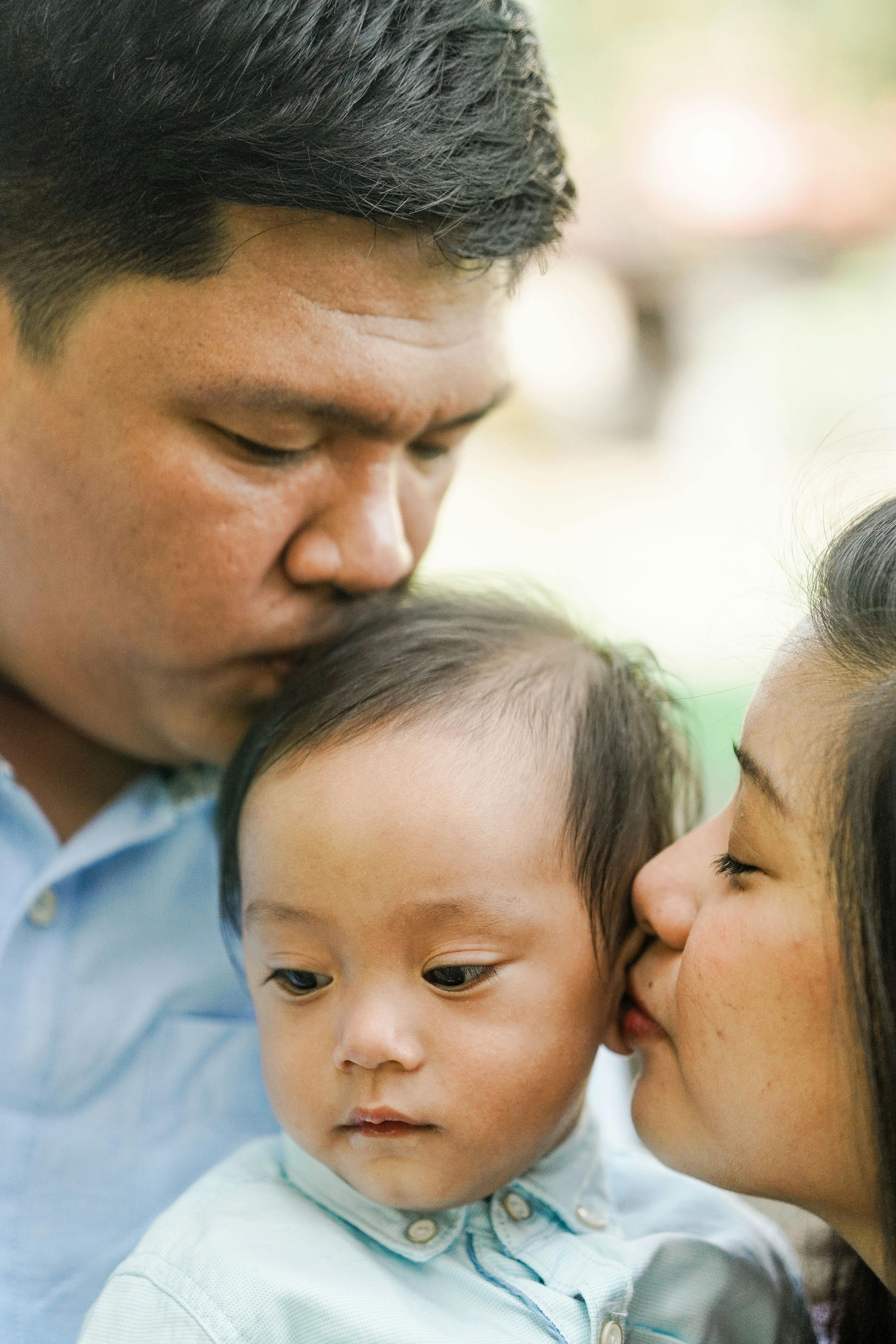Healing a Relationship After the Loss of a Child

There is nothing as heart-wrenching as the loss of a child. It is a pain that no parent should ever have to endure. And this devastating loss has a profound impact on a couple’s relationship. It shakes to the core even the most stable relationship. Dealing with the grief and emotions that come with such a tragedy can create a whirlwind of challenges, causing strain and tension between partners. In this article, we will explore the common relationship challenges couples face after the loss of a child and provide strategies to help navigate these difficult times together, ultimately healing and strengthening the bond between you.
Learn About Online Therapy Today!

Understanding Grief and Loss
Losing a child is one of the most devastating experiences a person can go through. The emotional impact of such a loss is profound and can deeply affect both individuals in a relationship. It is crucial to acknowledge that grief is a natural and necessary response to loss, and each person will experience it in their own unique way.
Emotional impact on couples when losing a child
The emotional impact on couples or any parent of losing a child is overwhelming and can manifest in various ways. Many people feel intense sadness, anger, guilt, and even disbelief. It is essential to understand that there is no right or wrong way to grieve. Everyone’s journey is different, and this is especially important to acknowledge as grieving parents. Some individuals may experience numbness and withdrawal, while others may be more expressive in their emotions. In this difficult time it is incredibly important to give yourself and your partner permission express emotions without judgment.
Parents Grieve Differently
Grief is a deeply personal process, and it is common for individuals in a relationship to have different ways of grieving. One person may prefer solitude and quiet reflection, while the other may seek solace in social connections. These differences can sometimes lead to misunderstandings and strain in the relationship. Understanding and respecting each other’s grieving process is crucial in navigating this difficult phase together.
Recognizing and validating each other’s emotions
In the midst of grief, it can be challenging to communicate and express emotions effectively. However, it is crucial to recognize and validate each other’s emotions. By acknowledging your partner’s pain and providing a safe space for them to express their feelings, you can strengthen your bond and create an environment of support. Remember, your emotions are valid too, and it is essential to communicate your needs effectively and openly.
Learn About Online Therapy Today!
Communication Challenges
When faced with the loss of a child, couples often find themselves facing numerous communication challenges. The intensity of emotions and the heaviness of grief can make it difficult to express oneself and understand each other fully. It is paramount to navigate these challenges and find ways to communicate effectively.
Difficulty expressing emotions
After the loss of a child, it is common for individuals to struggle with expressing their emotions. Words may fail to capture the depths of grief, leading to frustration and misunderstandings. In times like these, it is crucial to find alternative channels of communication. Non-verbal cues such as touch, gentle gestures, or even writing letters to each other can help bridge the gap and convey emotions that words cannot fully express. The truth is there are sometimes no words for the grief and pain of a loss.
Misunderstandings and miscommunications
Grief can distort our perceptions and lead to miscommunications. What one partner intends to say may be interpreted differently by the other, exacerbating the emotional strain. It is vital to approach conversations with patience, empathy, and a willingness to listen actively. Clarifying and validating each other’s perspectives can help reduce misunderstandings and foster a deeper understanding of one another.
Impact on intimacy and physical affection
The loss of a child can significantly impact intimacy and physical affection between partners. Grief often leaves individuals feeling emotionally drained, and the desire for physical intimacy may lessen. It is crucial to recognize and respect each other’s boundaries and needs during this period. Engaging in open and honest conversations about expectations and finding ways to maintain a sense of connection without placing pressure for physical intimacy is crucial.
Supporting Each Other Through Grief
Supporting each other through grief requires establishing open and honest communication, actively listening, and offering empathy. It is essential to be each other’s pillars in times of vulnerability and seek professional support when necessary.
Establishing open and honest communication
Open and honest communication is the foundation of strong relationships, especially during times of grief. Creating a safe space where both partners can freely express their feelings without fear of judgment is vital. This includes actively listening to each other, showing empathy, and being open to vulnerability. Regular check-ins and sharing how each person is coping with their grief can foster a deeper sense of connection and understanding.
Actively listen and show empathy
Active listening is a crucial skill in supporting each other through grief. It involves truly hearing and understanding your partner’s feelings, thoughts, and experiences without interrupting or dismissing them. Offering empathy by putting yourself in your partner’s shoes and acknowledging their pain can create a sense of validation and support. Remember, you may not always have the answers, but lending a listening ear and a caring heart can make a significant difference in your partner’s healing process.
Finding professional support
One of the most valuable thing a couple can after the loss of a child is to get professional support. Sometimes, the weight of grief and the complexities of navigating the aftermath of a child’s loss may require professional support. Seeking the guidance of a grief counselor or therapist who specializes in bereavement can provide invaluable tools to cope with the emotional challenges. Additionally, attending support groups for bereaved parents can offer a sense of community and understanding. Exploring alternative therapies or workshops that focus on healing can also be beneficial for both partners individually and as a couple.
Navigating Blame and Guilt
Grief often brings about feelings of blame and guilt, which can strain a relationship further. It is crucial to avoid placing blame on oneself or each other and instead acknowledge individual coping mechanisms while offering encouragement and reassurance.
Avoiding blame and guilt
In times of grief, it is not uncommon for individuals to blame themselves or each other, questioning whether they could have done something differently. However, blaming oneself or assigning blame to your partner is counterproductive and only intensifies the pain. It is essential to remind yourselves that no one is at fault and that grief is a complex and unpredictable process.
Acknowledging individual coping mechanisms
Each person may have different coping mechanisms when it comes to grief. It is important to recognize and acknowledge these differences in order to support one another effectively. One partner may find solace in talking about their child, while the other may need more alone time to process their emotions. By understanding and respecting these individual coping mechanisms, you can offer the support and space needed for healing.
Encouragement and reassurance
During this challenging time, encouraging and reassuring each other is vital. Remind your partner that they are not alone in their grief and that you are there for them every step of the way. Offer words of affirmation and reminders that healing takes time. Providing reassurance that the path to recovery is paved with ups and downs can help alleviate the burden of blame and guilt.

Coping with Changes in Roles and Responsibilities
The loss of a child may bring about significant changes in roles and responsibilities within a relationship. It is important to reevaluate parental roles, share household and childcare responsibilities, and seek help from support networks.
Reevaluating parental roles
The loss of a child often challenges traditional parental roles and expectations. It is crucial to reevaluate these roles and find a new equilibrium that works for both partners. This may involve redistributing tasks related to parenting and adjusting expectations based on one another’s emotional capacities. Open and honest conversations about these changes can foster a sense of teamwork and unity.
Sharing household and childcare responsibilities
Grief can be emotionally and physically draining, making it essential to share household and childcare responsibilities. Working together to tackle daily tasks and responsibilities can alleviate some of the burden and provide an opportunity for support and connection. Dividing responsibilities in a way that acknowledges each other’s needs and allows for self-care is key to preserving the relationship’s well-being during this challenging time.
Seeking help from support networks
Building a support network and seeking help from others is crucial in coping with changes in roles and responsibilities. Reach out to family, friends, or support groups in your community who may offer assistance or guidance. By extending your network and receiving support from others, you can alleviate some of the pressures and challenges that arise in the aftermath of losing a child.
Learn About Online Therapy Today!
Maintaining Emotional Intimacy
Maintaining emotional intimacy is paramount when navigating the aftermath of losing a child. Building emotional connection through shared experiences, adapting to changes in physical intimacy, and re establishing intimacy in non-sexual ways are essential elements in preserving emotional intimacy.
Building emotional connection through shared experiences
Finding shared experiences that honor and remember your child can build and strengthen emotional connection. This can include participating in activities or events that hold personal significance, such as visiting a memorial site or engaging in a hobby that reminds you of your child. By creating new memories and experiences as a couple, you can anchor your emotional connection and find solace in each other’s presence.
Adapting to changes in physical intimacy
Grief can significantly impact physical intimacy within a relationship. Both partners may experience changes in their desire for physical touch and intimacy. It is essential to communicate openly and honestly about these changes and find ways to adapt together. Recognize that physical intimacy may evolve and prioritize mutual consent and comfort. Patience, understanding, and adjusting expectations can help navigate these changes while maintaining emotional closeness.
Reestablish intimacy in non-sexual ways
Intimacy extends beyond physical touch and can be fostered in non-sexual ways. Engaging in activities that promote emotional connection, such as deep conversations, shared hobbies, or even cuddling, can help reestablish and strengthen intimacy. It is crucial to create opportunities for vulnerability, trust, and emotional support, even if the dynamics of intimacy have shifted.

Dealing with Conflict and Resentment
In the midst of grief, conflict and resentment can arise as emotions run high. Effectively managing anger and frustration, resolving conflicts through communication, and embracing forgiveness are essential in navigating a relationship through challenging times.
Managing anger and frustration
Grief can amplify emotions, leading to anger and frustration. It is important to find healthy ways to manage and cope with these intense feelings. Engaging in individual self-care practices, such as exercise, meditation, or journaling, can help regulate emotions. Additionally, finding shared outlets for releasing tension, such as practicing mindfulness together or engaging in physical activities, can provide a constructive means of dealing with anger and frustration.
Resolving conflicts through effective communication
Conflict is inevitable in any relationship, and grief can intensify these conflicts. When conflicts arise, it is important to approach them with patience, compassion, and effective communication. Utilize active listening skills and strive to understand each other’s perspectives. Seek common ground and identify potential solutions through compromise and understanding. Remember, you are both experiencing intense emotions, and conflicts can arise from a place of pain rather than malice.
Letting go of resentment and forgiveness
Grief may lead to feelings of resentment towards one another or even towards yourselves. However, holding onto resentment only hinders the healing process. Practice forgiveness, both towards your partner and towards yourself. Forgiveness does not mean forgetting or condoning, but rather choosing to release the emotional burden and create space for healing. Support each other in embracing forgiveness and letting go of resentment so that you can move forward together.
Honoring and Remembering the Child
Honoring and remembering the child who has been lost is an integral part of healing for both individuals in a relationship. Creating memorial rituals or traditions, sharing memories and stories, and acknowledging the child’s presence in daily life can provide solace and keep their memory alive.
Creating memorial rituals or traditions
Establishing memorial rituals or traditions can provide a sense of comfort and continuity. This can include activities such as lighting a candle on significant dates or creating a memory box filled with items that remind you of your child. By engaging in these rituals together, you can honor and remember the child while finding solace as a couple.
Sharing memories and stories
Sharing memories and stories about your child can evoke feelings of warmth and connection. Take the time to reminisce about moments and experiences you shared as a family. Encourage each other to talk about the child and listen attentively, allowing space for laughter, tears, and reflection. By keeping their memory alive through shared stories, you can find comfort and celebrate the impact that they had on your lives.
Honoring the child’s presence in daily life
Incorporating your child’s presence into daily life is a powerful way to honor their memory. This can include simple gestures like displaying photographs, leaving a place at the dinner table, or making space for their belongings. Finding unique ways to recognize their impact and maintaining their presence in daily routines can provide a sense of connection and solace.
Seek Professional Help for Grief and Loss
Navigating the aftermath of losing a child often requires professional support. Finding a grief counselor or therapist, attending support groups for bereaved parents, and exploring alternative therapies or workshops can provide guidance and tools for healing.
Finding a grief counselor or therapist
The guidance of a grief counselor or therapist can offer invaluable support during this difficult journey. Look for professionals who specialize in bereavement or have experience in helping couples navigate the challenges of loss. A counselor or therapist can provide a safe space to explore and process emotions, offer coping strategies, and guide you and your partner towards healing and growth.
Attending support groups for bereaved parents
Support groups tailored specifically for bereaved parents can provide a sense of community and understanding. Connecting with others who have experienced a similar loss can offer a unique form of support and validation. In these support groups, you can share your experiences, gain insights from others, and find comfort in knowing that you are not alone. Seek out local or online support groups to explore this avenue of support.
Exploring alternative therapies or workshops
In addition to traditional counseling, exploring alternative therapies or workshops can be beneficial for both partners individually and as a couple. These may include art therapy, yoga, mindfulness practices, or workshops focused on healing after the loss of a child. Research what alternative therapies or workshops are available in your area and consider their potential benefits in your healing journey.
Rebuilding a Future Together
Rebuilding a future together after the loss of a child involves setting new goals and aspirations, creating a positive vision, and rediscovering hope and resilience in your relationship.
Setting new goals and aspirations
The loss of a child undoubtedly alters the trajectory of your lives and dreams. Take the time to reflect and set new goals and aspirations as a couple. These can include personal goals as well as shared dreams that honor your child’s memory. By focusing on the future and working towards new goals together, you can find hope and purpose in your relationship once again.
Creating a positive vision for the future
Creating a positive vision for the future involves imagining a life filled with joy, love, and resilience. Visualize a future in which you and your partner find happiness and fulfillment despite the pain and loss you have endured. This vision can serve as a guiding light during difficult times, reminding you of the resilience and strength within your relationship.
Rediscovering hope and resilience
Grief challenges our sense of hope and resilience, but it does not extinguish them entirely. Find ways to nurture and rediscover hope together. This may involve engaging in activities that inspire optimism, connecting with others who have found strength amidst adversity, or practicing gratitude for the moments of joy, no matter how fleeting. It is through these acts of resilience and hope that you can rebuild your future together.
Concluding Relationships and the Loss of a Child
Navigating the aftermath of losing a child is one of the most challenging experiences a couple can face. The emotional impact, communication challenges, and shifts in roles and responsibilities can test even the strongest relationships. However, by understanding and validating each other’s emotions, actively supporting one another through grief, and seeking professional help when needed, you can foster healing, maintain emotional intimacy, and rebuild a future filled with hope and resilience.
Learn About Online Therapy Today!
Remember, healing takes time, and the journey is unique to each individual and couple. Be patient, compassionate, and kind to yourselves as you navigate this difficult path together.

